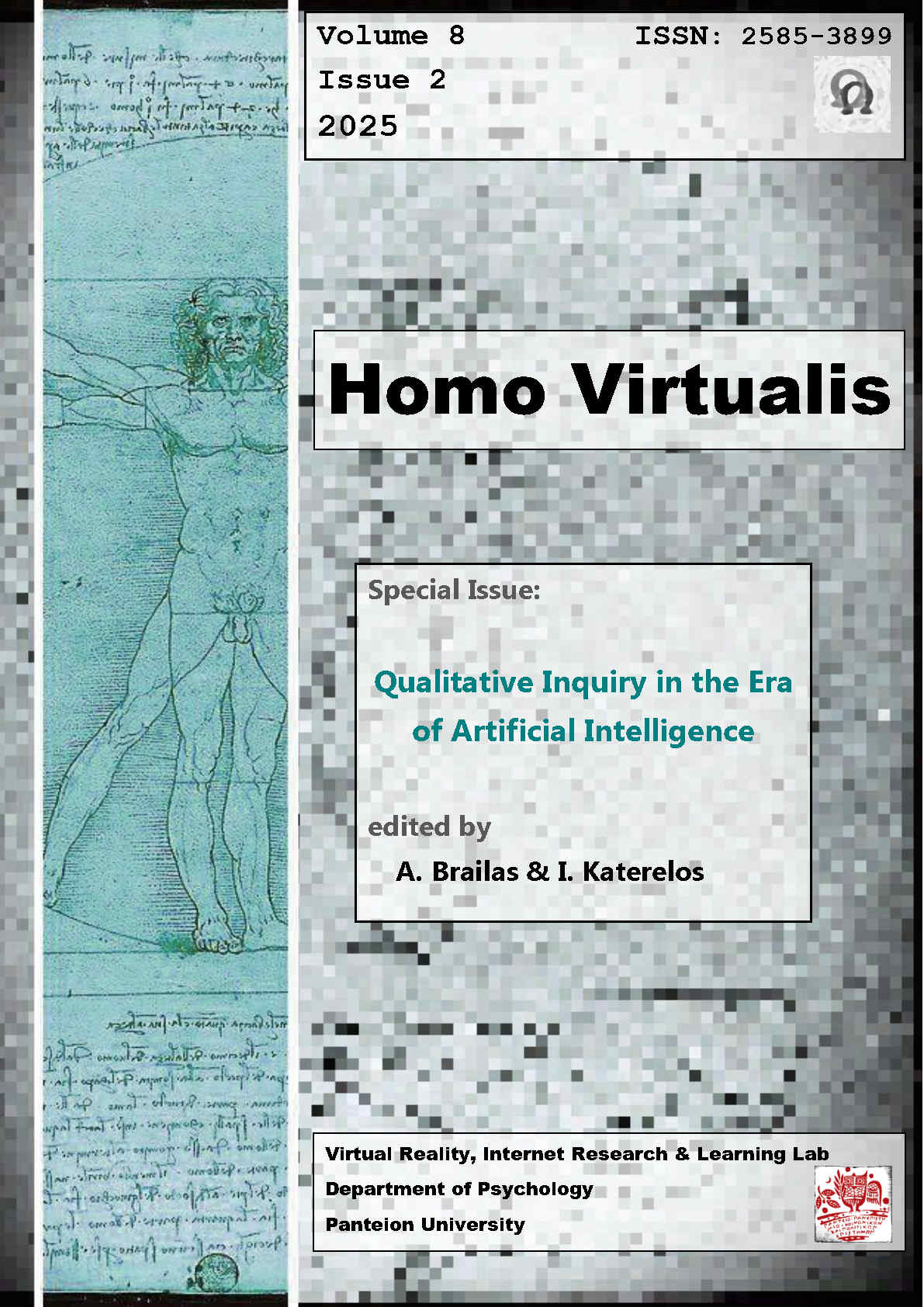Adverse Experiences in Childhood and Self-Compassion: An Appreciative Inquiry
Abstract
The purpose of this study is to explore the experiential way in which adults who have had adverse childhood experiences understand, process and redefine their personal identity, using tools such as self-compassion, mindfulness and personal visionary narrative. The research follows a qualitative, interpretive methodological approach and is based on the principles of social constructionism, recognizing the dynamic and discursive nature of identity. The data were generated through ten semi-structured, individual and multimodal interviews with five women and five men of Greek origin, from the middle and low socio-economic classes. Data analysis was based on the Thematic Analysis method and was supported by the QualCoder software to enhance accuracy and transparency in the coding process. The findings demonstrate that although the participants had internalized harsh childhood experiences, they gradually developed the skills of introspection, self-understanding and self-compassion. This ability seemed to be influenced by the form and chronicity of traumatic experiences, as well as by the existence or lack of supportive relationships. Furthermore, the use of appreciative inquiry strengthened their connection to personal meanings, values and desires, allowing them to shape a future vision free from the shackles of the past. The role of music as a tool to enhance self-compassion, and also as an autonomous regulating factor of mental resilience, was explored in the context of the study without being a central axis of analysis.
Article Details
- Come citare
-
Zerva, S. (2025). Adverse Experiences in Childhood and Self-Compassion: An Appreciative Inquiry. Homo Virtualis, 8(2), 412–434. https://doi.org/10.12681/homvir.43497
- Sezione
- Articles

TQuesto lavoro è fornito con la licenza Creative Commons Attribuzione 4.0 Internazionale.
Authors who publish with this journal agree to the following terms:
· Authors retain copyright and grant the journal right of first publication with the work simultaneously licensed under a Creative Commons Attribution License that allows others to share the work with an acknowledgement of the work's authorship and initial publication in this journal.
· Authors are able to enter into separate, additional contractual arrangements for the non-exclusive distribution of the journal's published version of the work (e.g. post it to an institutional repository or publish it in a book), with an acknowledgement of its initial publication in this journal.
· Authors are permitted and encouraged to post their work online (preferably in institutional repositories or on their website) prior to and during the submission process, as it can lead to productive exchanges, as well as earlier and greater citation of published work.



